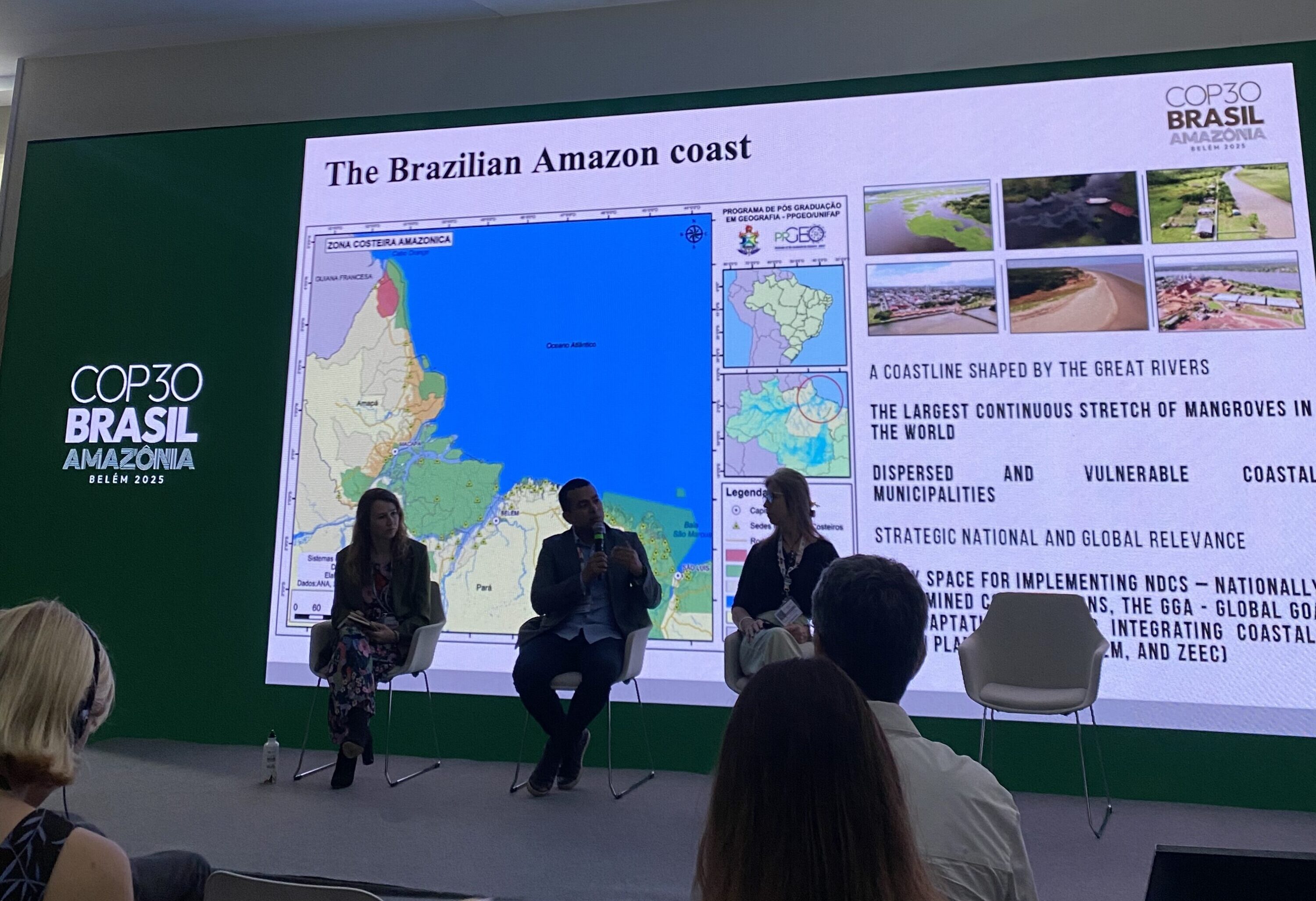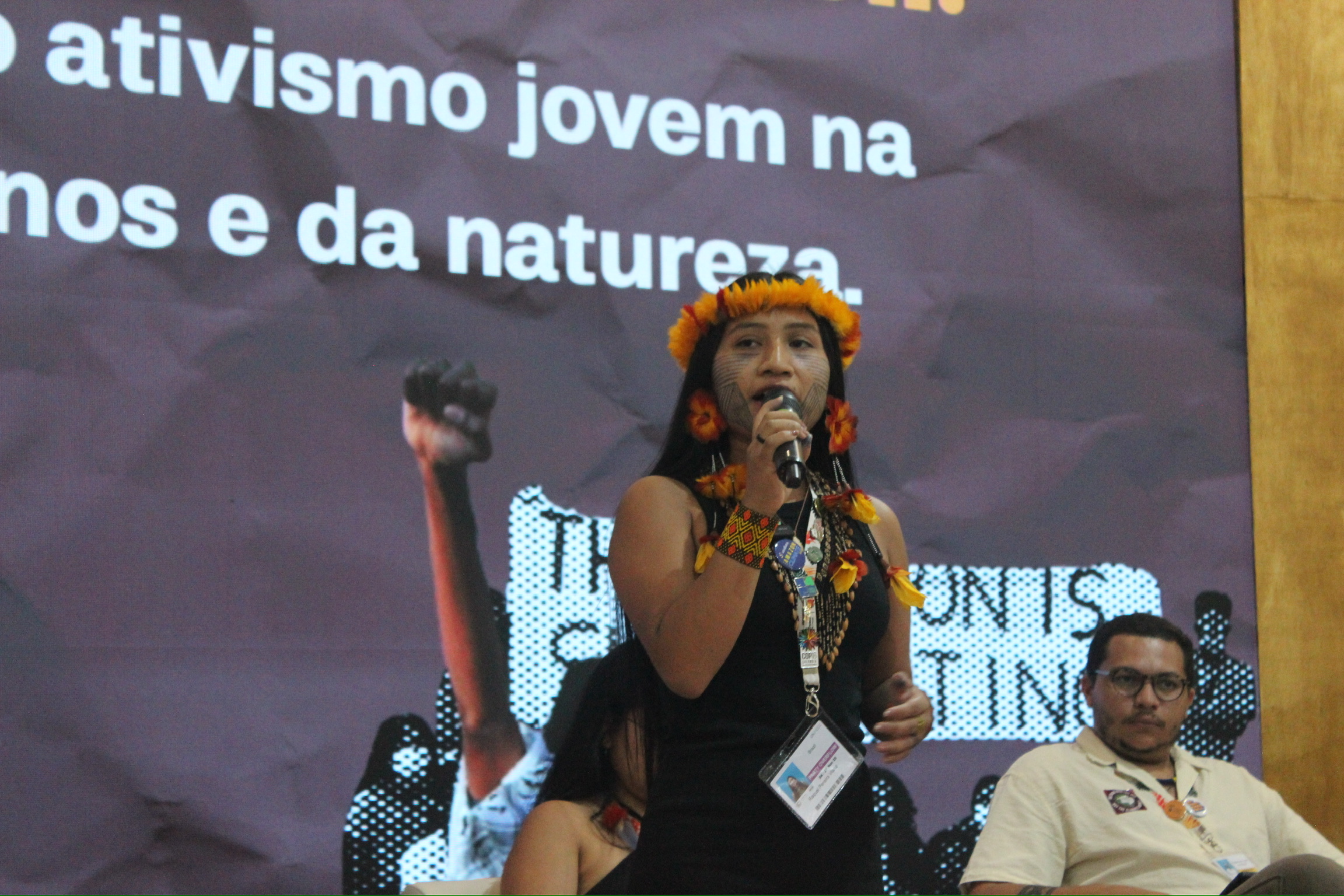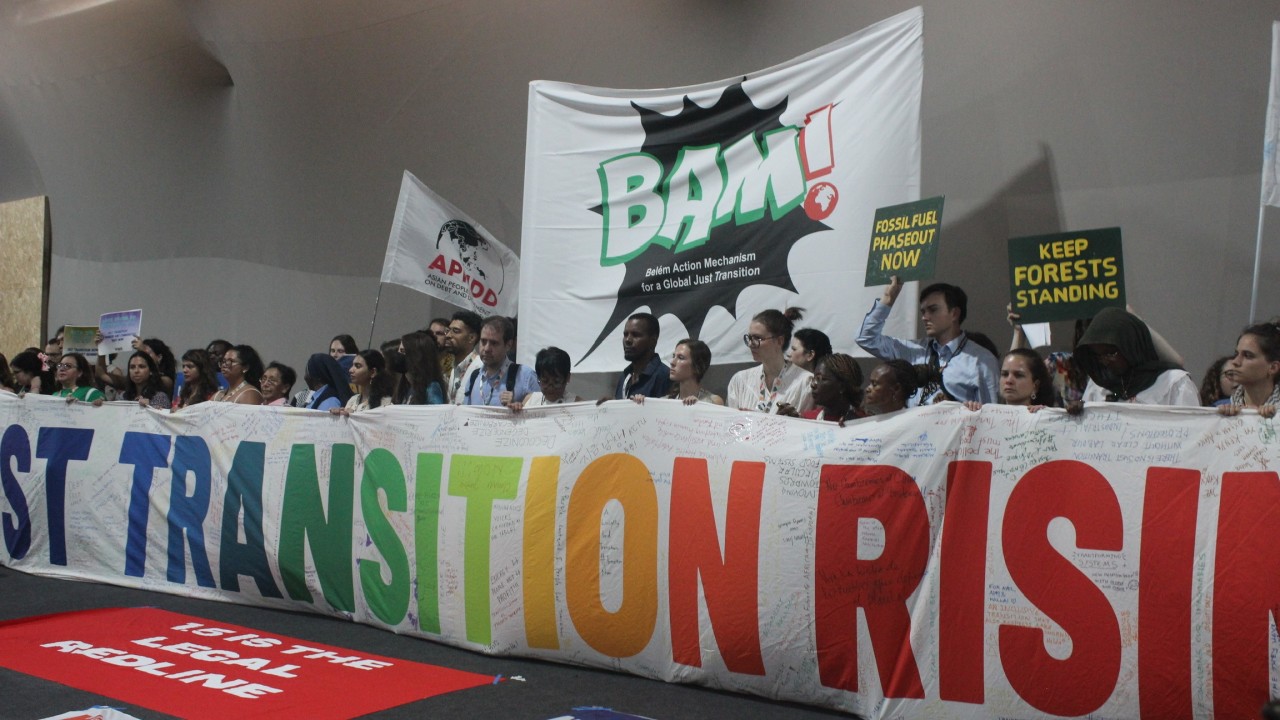COP30 in Belém, Brazil was riddled with more than its fair share of issues, from a fire breaking out in the conference venue to protestors clashing with security, rain seeping through the venue’s cracks, the United States failing to send representatives to the conference, and negotiations reaching a disappointing outcome after moving slower than ever. Beyond the COP30-specific mishaps, there are the classic controversies associated with COP every year: greenwashing, the presence of fossil fuel lobbyists, problematic investors, an egregiously expensive conference, and a list of empty promises.
The final deal reached at COP30 had a disheartening lack of references to phasing out fossil fuels, ending deforestation, and protecting the rights of Indigenous peoples, despite this COP being widely referred to as the “COP of the forest” and “Indigenous peoples’ COP” given the conference’s proximity to the Amazon Rainforest. Commitments to a roadmap to transition away from fossil fuels and end deforestation were backed by about 90 countries outside of the UN process, but were not a part of the formal deal and thus have no legal standing.
While financial support for developing countries to adapt to the impacts of the climate crisis tripled, the financial support will be mobilized by 2035 rather than the 2030 deadline that developing countries originally demanded. Furthermore, out of the four demands made by a “Cross-Constituency Call for a COP30 Adaptation Package” drafted by Climate Action Network, International Indigenous Peoples’ Forum on Climate Change, YOUNGO, and other organizations, none of the demands were met in full with the adequate language to support adaptation and climate resilience. These demands included: a new commitment on adaptation finance, meaningful inclusion, indicators for the UAE Framework for Global Climate Resilience, and a decision on National Adaptation Plans.
Many observers and delegates alike called the outcome of this COP the most underwhelming they had ever seen. Despite this, it’s worth celebrating the wins of COP30.
Win #1- Gender and cross-cutting considerations
A new “Gender Action Plan” was passed at COP30, instructing countries to improve representation of women at COP and in climate policy. The plan is a major win, with inclusive language, a mandate to protect women environmental defenders, and opportunities to link climate issues with other issues women face.
Additionally, thanks to YOUNGO and other advocacy groups at COP, the global goal on adaptation (GGA) text mentions cross-cutting considerations, acknowledging “the contributions of children, youth, people with disabilities, Indigenous Peoples and local communities, people of African descent and migrants to adaptation.” This marks the first mention of people of African descent and the first mention of intergenerational equity in a GGA text, demonstrating a shift towards intersectionality and the power of advocacy and civil society groups.
Win #2- Protecting rainforests at the regional level
Brazil launched the Tropical Forest Forever Facility (TFFF) at COP, an innovative global initiative to support the long term conservation of tropical forests by paying Tropical Forest Countries (TFCs) directly for each hectare of standing forest they maintain. TFFF has attracted over $6 billion in investments from Germany, Brazil, Norway, Indonesia, and more, and will protect biomes in over 70 TFCs.
Alongside TFFF, France and other EU countries backed a $2.5 billion initiative to protect the Congo Rainforest and combat forest loss from agriculture. Brazil also celebrated significant milestones by recognizing four new Indigenous territories and committing to tagging all 20 million cattle in the state of Pará, where COP took place, to help track deforestation.

Win #3- Passing peak petrostate
Former U.S. Vice President Al Gore addressed the outcome of COP30 today, saying “Ultimately, petrostates, the fossil fuel industry, and their allies are losing power. Just as we have passed peak Trump, I believe we have also passed peak petrostate. They may be able to veto diplomatic language, but they can’t veto real-world action. Countries, companies, cities, and states worldwide are moving forward to adopt the clean energy solutions that will create jobs, grow economies, and prevent the health catastrophes associated with burning fossil fuels.”
COP demonstrated this, with 29 nations including France, Germany, the United Kingdom, Mexico, and Chile writing a letter to the COP presidency that threatened to block the final deal unless a roadmap for phasing out fossil fuels was included. In the end, 83 countries joined the call to end fossil fuels.
Win #4- Small-scale solutions and participation
On a smaller scale, each day of COP brought innovative new solutions. For multiple years, the Singapore Pavilion at COP has offered free cans of NEWBrew, a beer made from recycled toilet water. What may seem like an unconventional solution is actually a tasty and effective way to address water scarcity. COP30 also introduced the Ocean Breakthroughs Dashboard, which assesses progress within five ocean sectors driving climate action. Each sector presents practical measures that can be taken to cut emissions and “drive progress toward the 2030 targets and a net-zero, nature-positive world”.
This year’s COP also tripled the number of Indigenous participants seen at previous COPs, with more than 900 Indigenous delegates. Youth engagement was also prominent with the creation of the role of the Presidency Youth Climate Champion, a role which was held this year by Brazilian activist Marcele Oliveira.
Win #5- Connection and community
Of all of these wins, the outcome of COP that stands out to me most is the coalition and community-building that took place at the conference. While the media reported on the negotiations happening in the plenary rooms, civil society groups, students, activists, and climate experts came together behind the scenes to learn from each other and find some semblance of joy in the chaos and disappointment.

Countless performances, art installations, chants, costumes, and silent protests could be seen throughout the conference, each representing a unique set of issues. On behalf of the Youth Climate Collaborative, hundreds of students gathered for a youth gala to celebrate student activism and a boat trip to nearby Ilha do Combu to share in the local Amazonian cultural traditions.
Each day, thousands of visitors stopped by the Green Zone, the publicly available area of COP, and expanded the diversity of voices included in the dialogue at COP. The diverse groups that pushed to make their voices heard at COP, including youth, women, and Indigenous peoples, left a lasting impression on the conference by inspiring others through culture, conversation, and action.
While the losses of COP30 invoke within us the anger and passion necessary to continue the fight against climate change, reflecting on the wins gives us the hope necessary to remember that progress is possible. For a climate-anxious person like myself, one moment in particular made the struggle towards climate justice feel worth it. Late in the evening on Monday, after most pavilions and meeting rooms had closed for the night, the sounds of karaoke filled the conference halls. After an exhausting day of negotiations, panels, meetings, and disagreements, COP attendees flocked to the Sweden Pavilion to sing along to their favorite songs.
While singing the poignant lyrics, “We are the world, we are the children, we are the ones who make a brighter day, so let’s start giving,” karaoke-goers from around the world embraced despite their differences, swaying back and forth to the sound of a shared commitment to the future.


